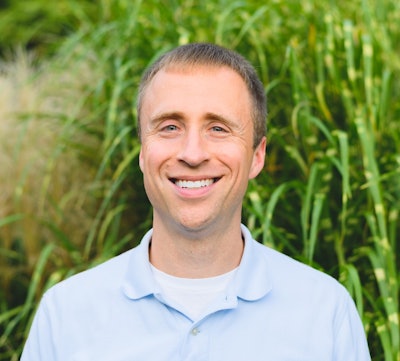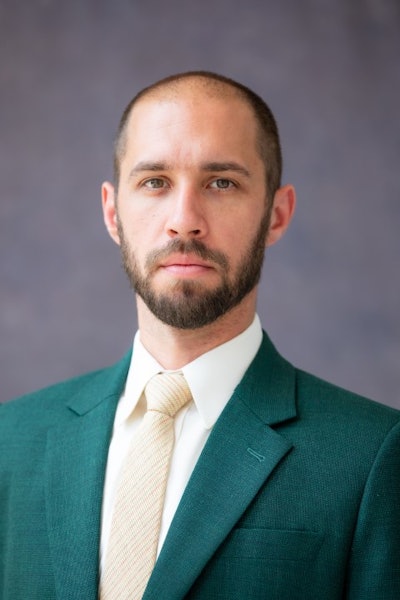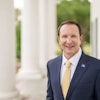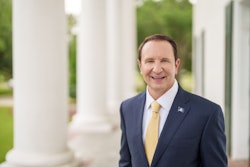A Texas district judge’s decision to strike down the Biden administration’s student loan forgiveness plan Thursday is a significant blow to the future of the program, according to experts.
 Dr. Robert Kelchen, head of the Department of Educational Leadership and Policy Studies at the University of Tennessee, Knoxville
Dr. Robert Kelchen, head of the Department of Educational Leadership and Policy Studies at the University of Tennessee, Knoxville
Dr. Luke Herrine, an assistant professor at the University of Alabama’s School of Law, concurred.
“In the short term, it’s an existential threat,” he said.
The judge’s order vacated the program, which had promised $10,000 of loan forgiveness to borrowers making under $125,000 and $20,000 of loan forgiveness to Pell Grant recipients. Nearly 26 million people had applied for the debt relief, and 16 million of their applications had been processed, but were on hold due to a separate lawsuit. In response to the ruling, the U.S. Department of Education pulled down the online application for forgiveness.
The Biden administration immediately announced that it would appeal the decision, but U.S. Court of Appeals for the Fifth Circuit, which would hear the case, might not be a favorable venue.
“The Fifth Circuit is the farthest right appeals court in the country,” said Herrine. “They go significantly farther than even the farthest right judges on the Supreme Court. So, it depends on the panel that's appointed for the case, but I wouldn't think it's out of the question that they would affirm this decision.”
After the Fifth Circuit rules, either side could appeal the case to the U.S. Supreme Court, which has a 6-3 majority of conservative-appointed justices. Dr. Rebecca Natow, an assistant professor of educational leadership and policy at Hofstra University, thinks that the reasoning of the Texas district judge stands a good chance of being upheld.
The ruling was based on a legal principle called the major questions doctrine, which dictates that actions by federal agencies that have large effects on the country, potentially including student loan forgiveness, require clear authorization by Congress. This year, the Supreme Court embraced the major questions doctrine in the case West Virginia v. Environmental Protection Agency, and Natow believes that it’s unlikely that the justices would now reject it.
“If the Supreme Court would take up this case, I think there's a pretty decent chance that they would agree that the major questions doctrine applies here,” she said.
 Dr. Luke Herrine, an assistant professor at the University of Alabama’s School of Law
Dr. Luke Herrine, an assistant professor at the University of Alabama’s School of Law
“I think there's still a good chance that the cancellation goes through,” he said. “It’s very hard to predict what [the Supreme Court] would do, [but] I think the most likely outcome is to say these plaintiffs don't have standing.”
Standing is the legal principle that a person must show that they have a connection to, and have experienced harm from, whatever they are challenging.
“It's worth noting that two previous challenges to [loan forgiveness] have been dismissed on standing grounds,” he said, referring to cases from Wisconsin and Indiana that Supreme Court Justice Amy Coney Barrett declined to refer to the full court. In Texas, the district judge ruled that the plaintiffs do have standing because one was ineligible for loan forgiveness and the other was not eligible for the maximum amount of loan forgiveness.
“This is a slightly different standing theory. I guess it's slightly more plausible, but it's still very close to a sort of standing theory that was summarily dismissed,” said Herrine.
Herrine thinks that rejecting the Texas case because of a lack of standing would be in character for the conservative members of the Supreme Court.
“The major proponents of restricting access to the courts on standing grounds have traditionally been judicial conservatives,” he said. “So, there's a sense in which [upholding the decision] would require a reversal of the underlying principles that the conservative legal movement is supposed to be putting forward.”
The timeline for the appeals process is currently unclear. But if it stretches into 2023, it might affect another aspect of President Biden’s student loan plan: the pandemic pause on repayment that was set to expire in January. Kelchen and Herrine both believe that the Biden administration might be forced to push it back. Otherwise, borrowers with debt under $10,000 (or $20,000 for Pell Grant recipients) that would be entirely forgiven would have to start paying again.
“It would be challenging and politically unpopular to resume payments for individuals that, if the court rules the right way for them, don't have any debt left,” said Kelchen.
Even if the Texas court’s decision is eventually upheld by the Circuit Court and Supreme Court, Herrine thinks that it’s possible that the loans could be forgiven anyway.
“There are other ways for the Department of Education to push this through,” he said.
One such way would be the use of the department’s Compromise and Settlement authority, which some have argued allows the department to reduce or wipe out any loan debt that they choose. However, cancelling debt under this rubric would certainly result in additional legal battles.
In the meantime, however, the fate of student loan forgiveness is up in the air. For now, Kelchen thinks that borrowers should expect the worst but hope for the best.
“Don't count on forgiveness. It may very well happen, but it can't be guaranteed,” he said. “Plan on no forgiveness and you may be pleasantly surprised.”
Jon Edelman can be reached at [email protected].


















